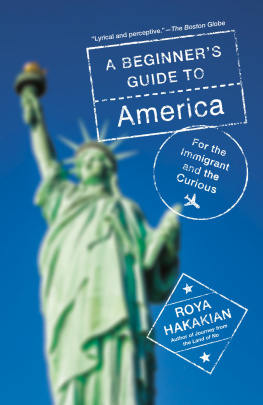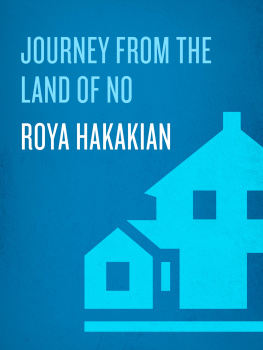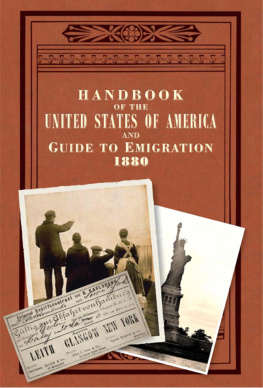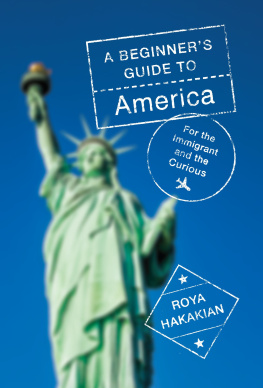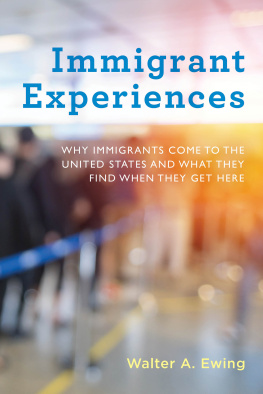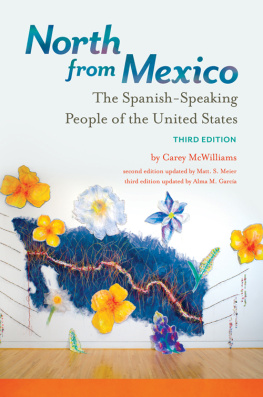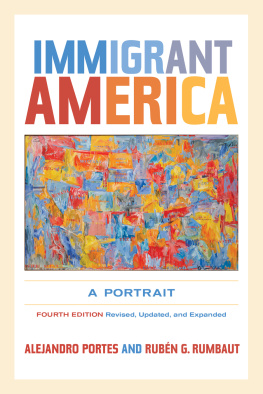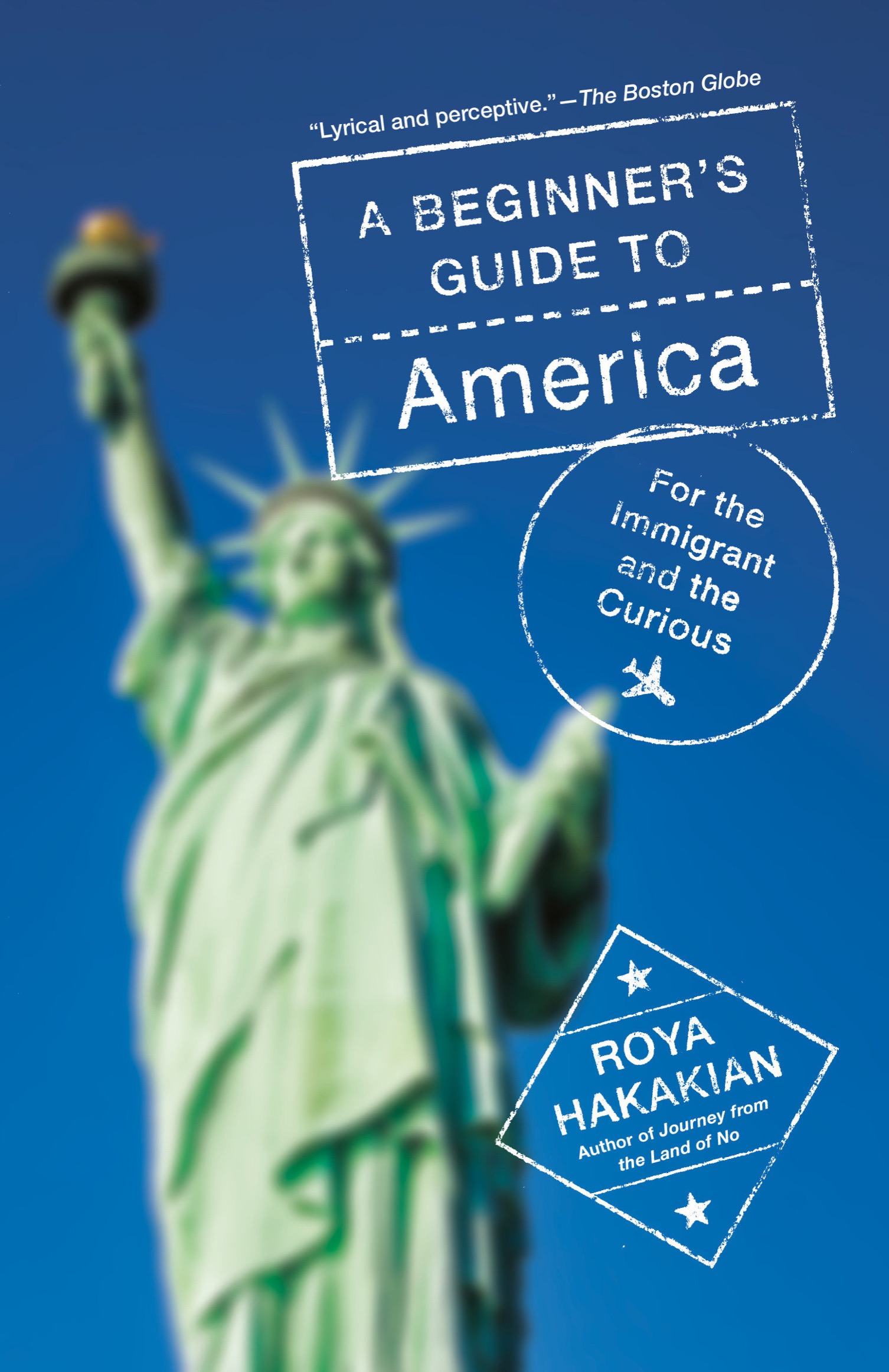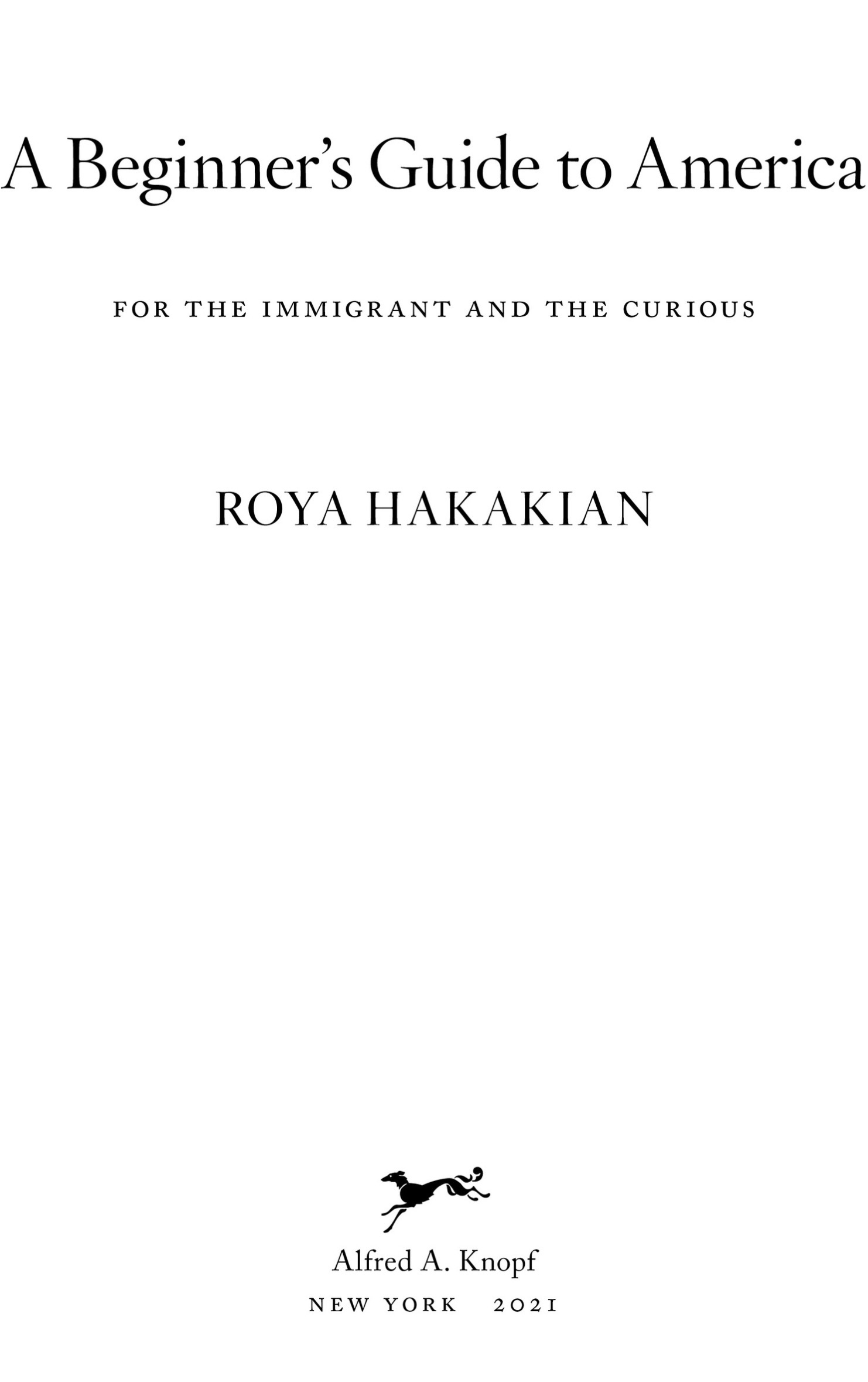Also by Roya Hakakian
For the Sake of Water: Selected Poems in Persian
Journey from the Land of No:
A Girlhood Caught in Revolutionary Iran
Assassins of the Turquoise Palace
this is a borzoi book
published by alfred a. knopf
Copyright 2021 by Roya Hakakian
All rights reserved. Published in the United States by Alfred A. Knopf, a division of Penguin Random House LLC, New York, and distributed in Canada by Penguin Random House Canada Limited, Toronto.
www.aaknopf.com
Knopf, Borzoi Books, and the colophon are registered trademarks of Penguin Random House LLC.
Library of Congress Cataloging-in-Publication Data
Names: akkkiyn, Ruy, author.
Title: A beginners guide to America : for the immigrant and the curious / Roya Hakakian.
Description: New York : Alfred A. Knopf, 2021.
Identifiers: LCCN 2020016857 (print) | LCCN 2020016858 (ebook) | ISBN 9780525656067 (hardcover) | ISBN 9780525656074 (ebook)
Subjects: LCSH : ImmigrantsUnited StatesHandbooks, manuals, etc. | ImmigrantsUnited StatesLife skills guides. | United
StatesEmigration and immigrationHandbooks, manuals, etc.
Classification: LCC JV 6543. H 34 2021 (print) | LCC JV 6543 (ebook) | DDC 646.70086/9120973dc23
LC record available at https://lccn.loc.gov/2020016857
LC ebook record available at https://lccn.loc.gov/2020016858
Ebook ISBN9780525656074
Cover photograph by Flavia Mortachetti / Moment / Getty Images
Cover design by Jenny Carrow
ep_prh_5.6.1_139062766_c0_r2
In memory of my father,
the first Hakakian to write,
the last Hakakian to arrive in America
So Odysseus, with tact,
said, Do not be enraged at me, great goddess.
You are right. I know my modest wife
Penelope could never match your beauty.
She is human; you are deathless, ageless,
But even so, I want to go back home
Homer, The Odyssey, translated by Emily Wilson
***
I love America more than any other country in the world, and, exactly for this reason, I insist on the right to criticize her perpetually.
James Baldwin, Notes of a Native Son
***
Id better get right down to the job.
Its true I dont want to join the Army or turn lathes in precision parts factories, Im nearsighted and psychopathic anyway.
America Im putting my queer shoulder to the wheel.
Allen Ginsberg, America
Contents
Prologue
In August 1984, I fled my beloved homeland, Iran. After many months of wandering through Europe as a refugee, I was finally admitted into the United States. What I say in this book is what no one told me when I first arrived, when all I heard was about practicalities, and nothing about how to understand or cope with the whirlwind of emotions that had swept me up and in whose eye I remained for a long time. Everyone was trying to help me get on with my new life, all the while I was under the sad spell of the old.
No two immigrants are the same, therefore no two arrival experiences are the same. Yet even as immigrant groups are divided based on their strengths or shortcomings, successes or failures in America, they have far more in common as members of an uprooted community, trying to make their way in the unfamiliar land. This book is, in part, about all that bonds them. Immigrants are not interchangeable. And yet, just as there are common human experiences, there are also common immigrant experiences. Scholars, for their own scientific purposes, and politicians, for their own partisan purposes, often focus on immigrants as distinctly separate groups to measure their value to, or their burden on, the nation, to debate which one should be allowed in and which should be banned altogether. In truth, all that separates one group from another often pales against the common drama of displacement and the ordeal of resettlement. Speaking of that drama is one way of warding off those who wish to reduce the shared narrative of that odyssey to a series of disjointed entries in the encyclopedia of arrival.
In offering the newcomers perspective, this book will inevitably cast a fresh look at America, rethinking and presenting her to all readers through the weathered perspective of a naturalized citizen. Perhaps those who have been born and raised here, and assume that their mere birth either endows them with the knowledge of America or exempts them from exploring and discovering her, can see her anew, through the eyes of others who dream of becoming Americans.
Much of what follows is the story of my own life, and the lives of people I love or have tried to help in a personal or professional capacity. If there is an attempt, it is at inclusivity, at trying to weave in as many immigrant experiences as would fit the confines of these pages. In the end, I was left with an unusual composition made up of my own recollections and those of my fellow immigrants as told in memoirs, autobiographies, personal testimonies, and other thoughtful and provocative writings on the subject, which I have listed in my sources. The result is part memoir, part reportage, and part a work of imagination. True to the nature of displacement, this book has elements of all these genres, but ultimately belongs to none of them. My greatest hope has been to give an unmediated access to a narrative that has become disfigured by overzealous emissaries on both sides of the political debate.
I have lived through war and a violent revolution. I have been persecuted for my religion, gender, and beliefs, too. What I hope all these experiences bring to this book is a measure of authenticity. Authenticity is not all an immigrant needs, but it is a good place to begin a new conversation, or a new book.
Roya Hakakian
October 2020
Part I
One
Upon Arrival in America the Beautiful
A newcomer can do much to teach himselfespecially if he is not afraid of being called a greenhorn.
Marian Schibsby, Handbook for Immigrants to the United States, Foreign Language Information Service ( 1927 )
The long-awaited day is here. You are almost in America. Up in the sky, you press your forehead against the glass and look down. There you see her for the first time. If you are arriving at night, America, the jewel, shimmers beneath. If in daytime, you see the outlines of her riches, the green of her lush woods, the blue of her leviathan waters. Until then, you had only felt exhaustion and sleeplessness. But all that vanished at the first glimpse of the ground. Now there is only fear and excitement coursing through you.
It has been a long time since you have been welcomed anywhere. Tearsof dread, sadness, or gratitude, you cannot be sureblur your view of the forms you must fill out before landing. If you come from a country of compulsory dress codesveils, scarves, or niqabsyou might shed the layers now, but remember that soon customs officers will glance at the photograph in your passport and then at you standing before them to reconcile the two versions of you. This is the first of many masks you will shed in the years to come.
From the moment you step off the plane, your eyes will search for the traces of Americanness in your surroundings. Yet the sun is the same sun. The asphalt looks just as black. The jetway gives the same groan all other jetways give underfoot. The transit corridors lit with fluorescent lights stretch as menacingly as all passageways you have gone through. Only when you stand in lineone hand clutching a bag, another on the handle of a suitcaseand your eyes begin to rove about will you see something you have only seen at a tourist destination before. Pinned on the flap of the chest pockets of the officers guiding everyone are name tagsSanchez, McWilliams, Cho, Al-Hamedand, by God, all of them Americans! If jet lag has not clouded your senses, you will instantly recognize this to be the surest sign of America. In the monochrome life you just left behind, such a motley human landscape would have been unthinkable.

